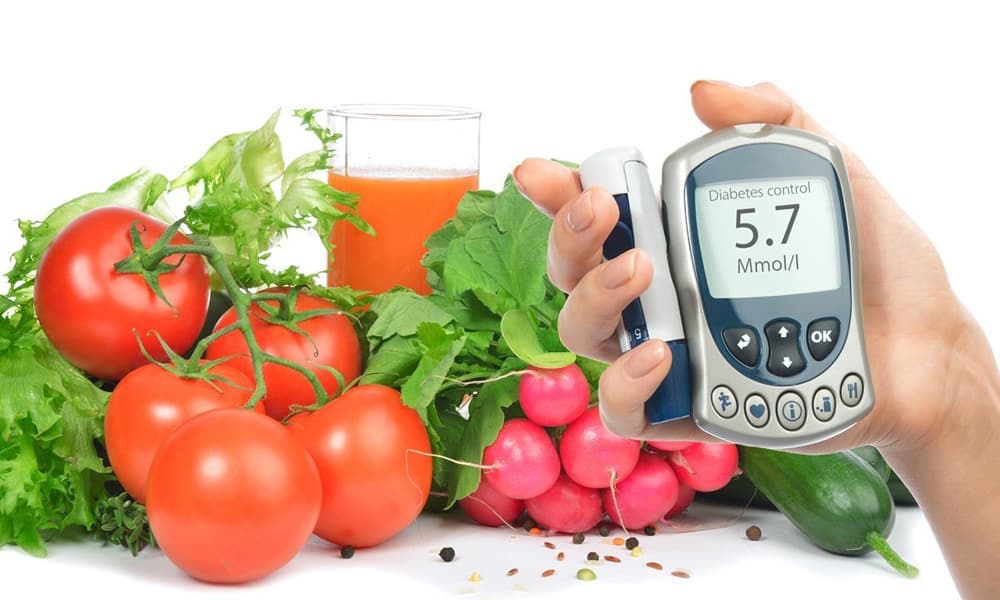Taking control of what foods you eat not only helps you to manage diabetes but also influences how well they feel and how much energy they have every day.
Foods to avoid with diabetes
Having diabetes does not have to stop people from eating few foods they enjoy. However, it does mean that they should eat smaller portions, less often.
By taking carbohydrate for most people should be between 45-65 percent of total calories. This higher carbohydrate intake is consistent with plant-based diets, which have shown benefit for diabetes management in well-designed, long-term studies.
Experts who are just beginning to understand the influence that the gut bacteria have on health. What is known is that high-fiber carbohydrates feed gut bacteria while a high-fat, low-carb diet often results in gut bacteria death. This is very far from ideal as people with diabetes already have lower levels of gut bacteria.
Populations around the world that live the longest, known as Blue Zones, all eat a plant-based diet, rich in whole foods and carbohydrates.
Here are foods to avoid within the major food groups.
Grains

All grains are starches. Avoiding refined grains is a best choice for people with diabetes, regardless of chosen diet, as they affect blood glucose more quickly than the whole grains.
Grains and products made from refined flours to avoid or limit
- White rice, pasta, and flour
- Crackers and pretzels
- White bread, bagels, white-flour tortillas
- Cereals not made from whole grains
- Cakes
- Muffins
- Cookies.
Protein

Protein generally helps the body build, maintain, and replace the body’s tissue. The body’s organs, muscles, and immune system are made up of protein. Protein can also be broken down into sugar, although less efficiently than carbohydrates.
By eating red meat, such as beef, pork, and lamb, has been shown to increase the risk of diabetes, even when consumed in small amounts.
One 3-ounce serving of unprocessed red meat, such as beef, per day has chances to increase the risk of developing type 2 diabetes by 20 percent. A small amount of serving processed red meat, such as bacon, increased the risk of diabetes by 51 percent.
Swapping red meat or processed red meat for other protein sources that are more healthful, such as poultry, fish, low-fat dairy, whole grains or nuts, may cut the risk of diabetes by up to 35 percent.
Protein to avoid or limit
- Deep-fried fish
- Breaded, fried, high-sodium meats
- Processed meats (bacon, hot dogs, deli meats)
- Ribs and other fatty cuts of meat
- Poultry with skin
- Red meat (beef, pork, lamb).
Dairy

Dairy proteins are a major source of calcium and contain proteins and vitamins, and people with diabetes can still consume products, such as milk, yogurt, and cheese, every day.
People with diabetes are more likely to develop cardiovascular disease than other people. So, they should exchange foods that increase the levels of cholesterol in the blood and lead to a greater risk of heart disease for lower-fat options.
Dairy to avoid or limit
- Whole milk
- Full of fat yogurt
- Full-fat ice cream
- Full-fat cottage cheese
- Fullof fat cheeses
- Full-fat sour cream.
Fruits and vegetables

Fruits and vegetables not only add nutrients to the diet, but they also help manage body weight and reduce the risk of stroke, heart disease, some cancers, and other chronic diseases.
While some fruits may cause blood sugar levels to rise, they do not cause such sharp increases as some carbohydrates, such as bread, do. Whole fruits are considered to be high-quality of carbohydrates and they also contain fiber that may help slow down the absorption of glucose.
Dried fruit contains concentrated natural sugars, which may spike blood glucose levels. People with high blood pressure should also be wary of sodium levels in canned and pickled vegetables.
Fruits and vegetables to avoid or limit
- Dried fruit
- Canned fruits with sugar syrup
- Pickles
- Regular jam, jelly, and preserves
- Sweetened applesauce
- Fruit drinks, fruit juice drinks
- Canned vegetables with added sodium
- Sauerkraut.
Fats and sugars

Avocado and nuts both contain fats that are an essential part of a healthful diet. Fat is a source of essential fatty acids, such as omega-3, and is an important part of a healthful, balanced diet. Fat also helps the body to absorb vitamins A, D, and E.
Replacing saturated fats and trans fats with unsaturated fats lowers cholesterol and reduces the risk of heart disease.
Sugary foods, sweets, and desserts are made mostly of sugar and are considered to be low-quality carbohydrates. They lack in nutritional value and also they can cause a sharp spike in blood sugar.
Fats and sugars to avoid or limit
- Butter
- Lard
- Certain oils, such as palm oil
- Doughnuts
- Cream-based dressings or dips
- Full-fat mayonnaise
- French fries
- Breaded and battered foods
- Potato chips.
Despite what someone’s present diet is, there are plenty full of healthful alternatives available for people to try. Once someone has been adjusted to a new diet, they may also not even miss the foods they used to eat.

